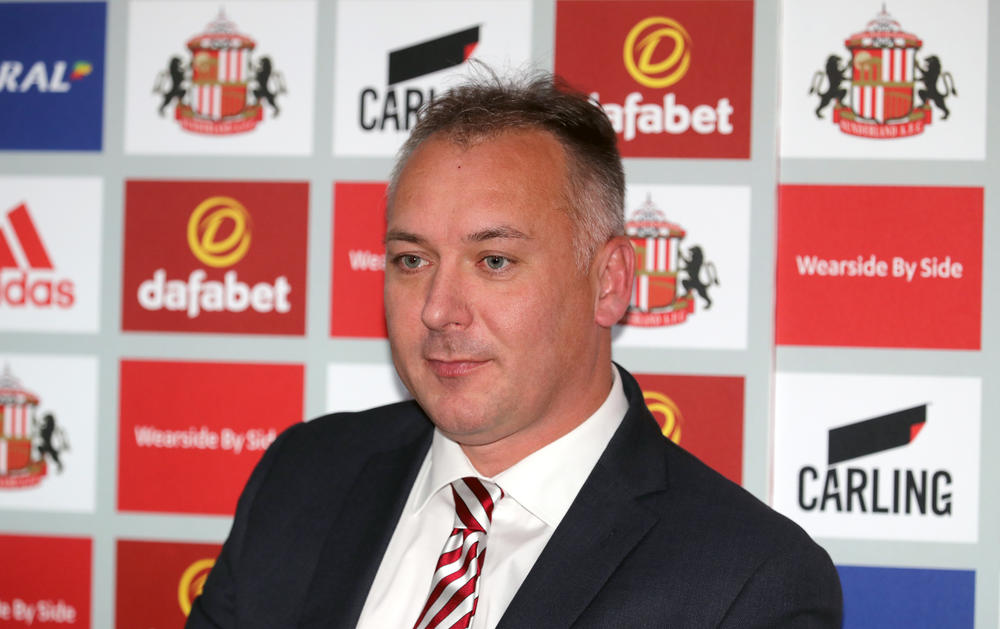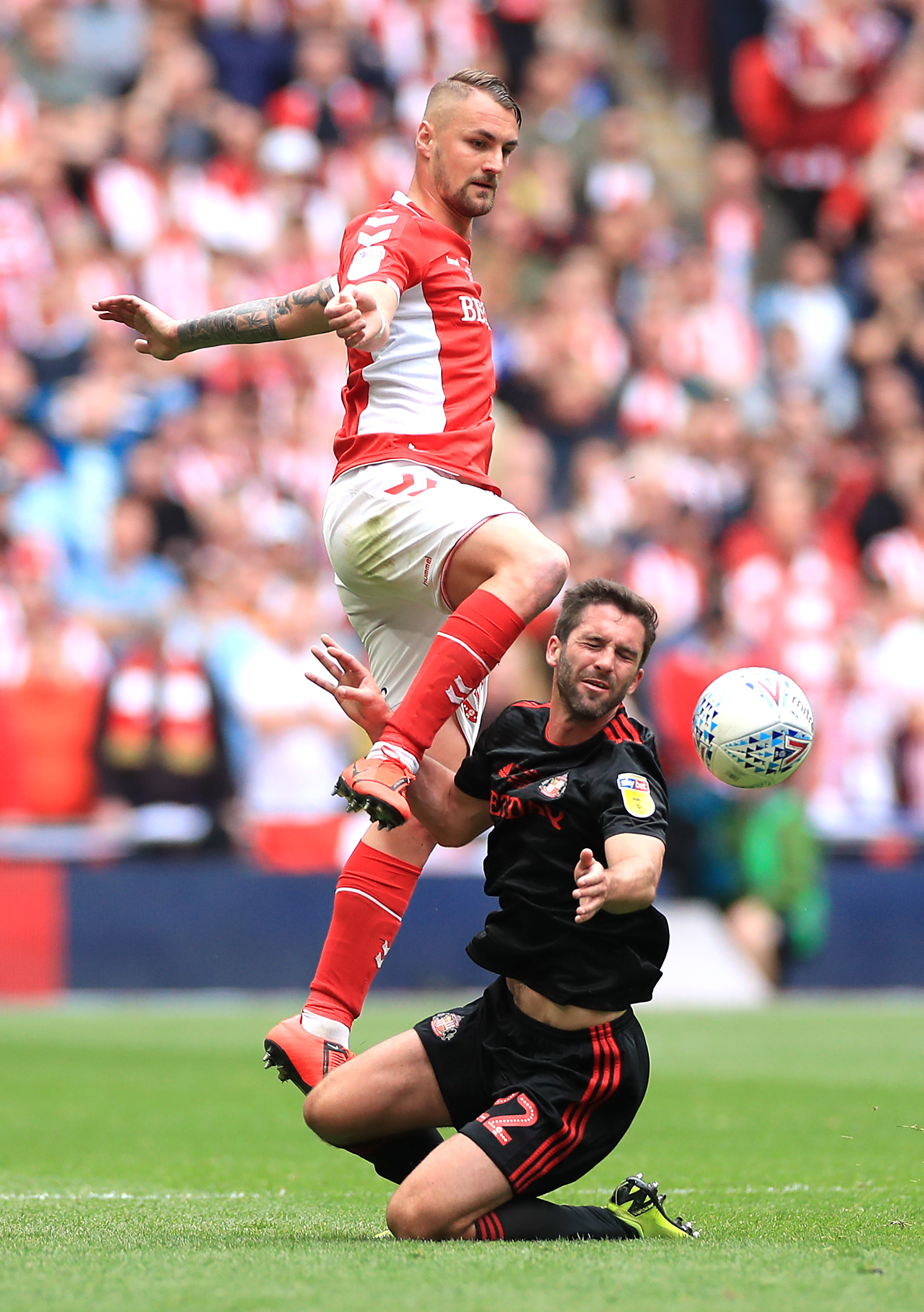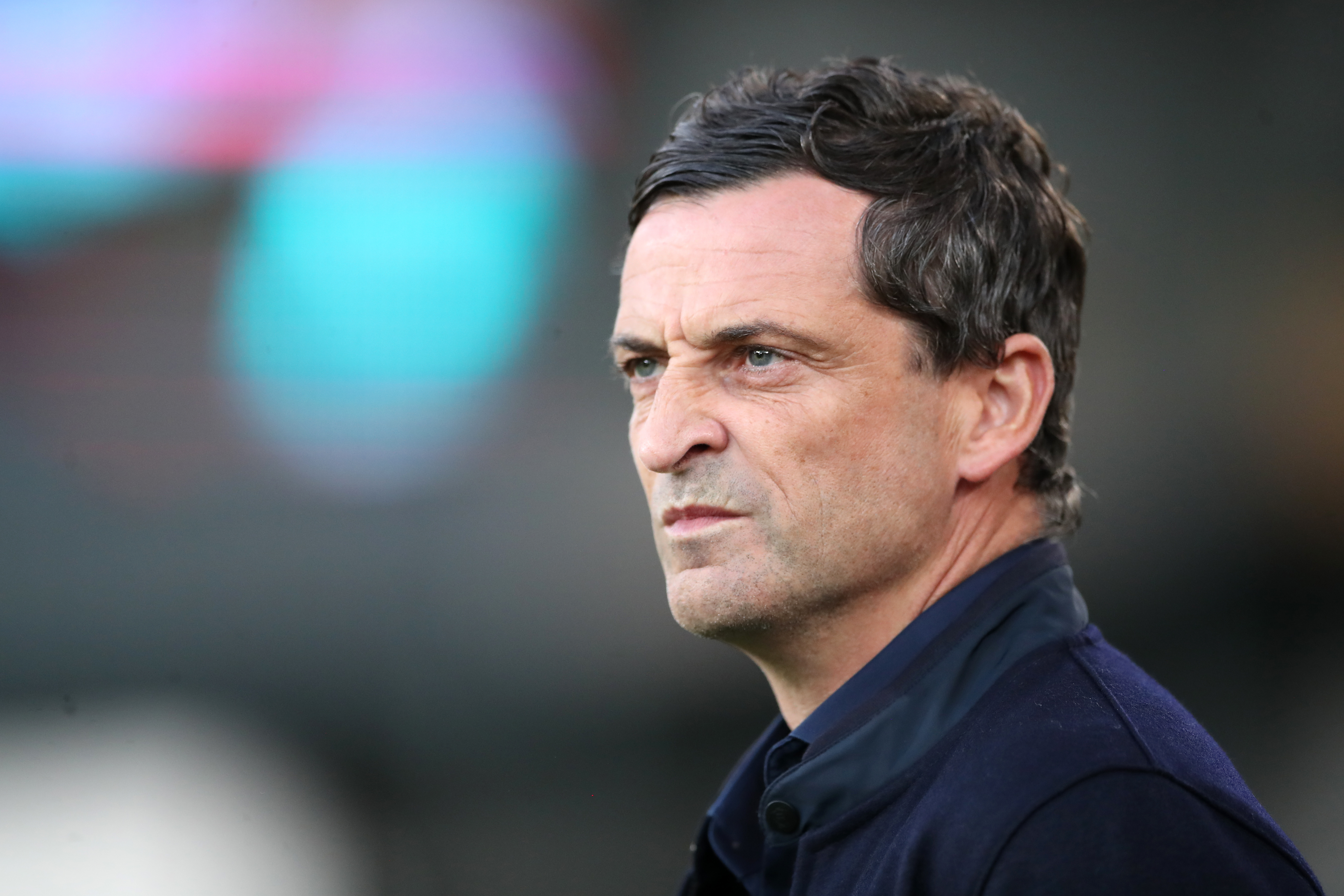What to expect from series two of ‘Sunderland ‘Til I Die’ documentary

With global soccer largely shut down, fans desperate for a fix of the beautiful game will soon be able to find it in the form of series two of ‘Sunderland ‘Til I Die’, the hit Netflix documentary.
The six-part series follows Sunderland’s 2018-19 season under new owner Stewart Donald, who offers extensive access behind the scenes at the Stadium of Light.
Ahead of its release on April 1, the PA news agency spoke to executive producer and Sunderland fan Ben Turner about what viewers can expect from a season featuring two trips to Wembley, the agony of missing out on promotion and some “stupid decisions”.
Q. Why did you want to make the original series?
Not long to wait now #STID2pic.twitter.com/KGHLcHItee— Sunderland ‘Til I Die 🔙🆙🔜 (@1973mackem) March 23, 2020
A. Because we’re Sunderland fans and we make sports docs. That’s the long and short of it. I would have loved to play for Sunderland, that was my dream, being a film-maker’s about my third option. But the things that you love and associate with the most you can do a better job on and we certainly saw something which we felt could be amazing and I feel like we were right.
Q. Were the club easily persuaded?
A. For series two it was quite easy but it had taken us a long time to get into Sunderland. Our first film was in 2007 and almost immediately we called the club to see if we could do something. They’ve knocked back people more capable than us so we were in good company being rebuffed, but we stuck at it for years and as our brand grew and the sports genre took off, the more possibilities opened up and we finally got to do it. We’ve sat in the stands and sang “We’re by far the greatest team the world has ever seen” and known deep down that wasn’t true on the pitch, but in terms of making a series Sunderland are by far the greatest.
Q. Were you surprised by how popular it turned out to be?
A. It’s difficult to know how successful anything is going to be. We’ve made lots of things that I thought were fantastic and no-one really liked. But we very much try and find an audience beyond the obvious audience for it. You want a resonance in the story that goes beyond the football. When we were pitching “The Class of ’92” the question which came up all the time was ‘Why? Whichever way round you do a sports documentary it doesn’t have the drama and the uncertainty of it happening for real. Our answer was that these stories are meaningful to people beyond the sport, what happens on the pitch is only part of the story. A lot of the feeling for this series comes from that, the utterly unrealistic love for the place. Something about that got into Charlie and Stewart, these two rich southerners coming up to that place, wanting to make it work and really falling in love with it and in the end making some pretty stupid decisions based on that romance. I think there’s something really compelling about that and as a fanbase, myself included, we all feel a bit disappointed in Charlie and Stewart about what’s happened. But it wasn’t through the lack of trying and it’s a constant question and kind of an underlying theme of the series, what makes a really successful businessman like Stewart make a terrible decision like signing Will Grigg.
Q. A terrible decision?

A. That’s the kind of thing I mean when it’s good to revisit those moments again. I remember when Grigg scored in the semi-final of the Checkatrade Trophy and I was like “maybe he (Donald) is a genius after all!”. It’s a great luxury as a sports fan that you get to be hugely judgemental about someone else’s decisions and feel that it means more to you than the guy who is throwing millions of pounds of his own money down the drain.
Get FourFourTwo Newsletter
The best features, fun and footballing quizzes, straight to your inbox every week.
Q. Would it be fair to say that manager Jack Ross was not keen on having the cameras around?
A. That would be fair to say. He was resistant and that’s not uncommon in the football world. Jack was never rude or unpleasant to us, but he wasn’t particularly receptive to having the cameras there.
Q. Is that why there is no dressing room access at half-time, unlike another Sunderland documentary, Premier Passions?

A. Strangely in the end it was sort of a blessing in disguise, partly because the Man City documentary has Pep Guardiola and with all due respect to Jack Ross, he’s not Pep Guardiola. In Pep you’ve got one of the greatest managers in the world and a magnetic personality. You don’t want to end up with the sub-par version of someone else’s show and they nailed it there, so you want to do something different. That pushed us in series one to take it into the fans and in this series the window you get into how Stewart and Charlie were operating is really unique and makes the documentary fascinating.
Q. Is a third series in the pipeline?
A. As it stands there isn’t. We couldn’t see a way for series three, with the way that it all ended, cto have another new take on it. It felt like there wasn’t enough possibilities to tell a different story this year but I’d love to put Sunderland getting promoted out there, so I wouldn’t rule it out.
Q. Given the current situation, has the release date come at a good time?

A. That was in Netflix’s hands. I think I’m pretty good at making films, I don’t know tonnes about releasing them so I’m happy to let Netflix release and promote it.
Q. Do Netflix tell you the viewing figures?
A. They have a record but they don’t really share it with us. The big stat from series one was that we had an unusually high retention which was incredibly satisfying, but apart from that we don’t really know. It did well enough that we got recommissioned.
FourFourTwo was launched in 1994 on the back of a World Cup that England hadn’t even qualified for. It was an act of madness… but it somehow worked out. Our mission is to offer our intelligent, international audience access to the game’s biggest names, insightful analysis... and a bit of a giggle. We unashamedly love this game and we hope that our coverage reflects that.

